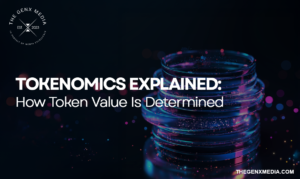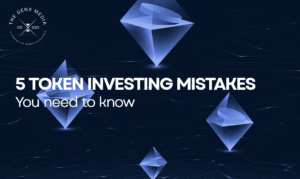You have probably heard people talk about “tokens” when they talk about crypto. It may sound like just another new word, but tokens are actually very important in the digital world.
So, what does token mean?
In the simplest way to say it, a token is a digital asset. It is something you can own. You can trade it or use it. Think of it like a coin you use in real life. The only difference is that it exists on the blockchain.

Let us look at what that really means in very easy words.
Token vs Coin: What Is the Difference?
People often mix up tokens and coins. They think they are the same thing. But they are different.
Here is the big difference.
- A coin is a type of cryptocurrency that has its own blockchain. Bitcoin and Ethereum are coins. They have their own separate blockchains.
- A token does not have its own blockchain. It is built on top of an existing blockchain. Most tokens are made on Ethereum’s blockchain.
Think of it like this.
Coins are like the main apps that come with your phone’s operating system.
Tokens are extra apps you can install that use that system.
Coins are the base. Tokens are built on top to add new things and make the whole system more useful and creative.
What Are Tokens Used For?
Tokens are not just for buying things or trading them. They can be used in many different ways. They can be programmed to do very specific things.
Here are some types of tokens.
Utility Tokens
These are the most common tokens. You use them to access a service or a product. They are like digital coupons or keys.
Example: BAT (Basic Attention Token) is given to people for watching ads on the Brave browser.
Security Tokens
These tokens are like digital stocks. They show ownership of real-world things like company shares, real estate, or bonds. They follow rules like traditional investments.
Example: A company can give out a token that lets you get part of its profits.
Governance Tokens
These tokens give you the right to vote in a blockchain project. If you own a governance token, you can help decide how the project grows and changes.
Example: On DeFi platforms like Uniswap, holding the governance token means you can vote on important changes.
Non-Fungible Tokens (NFTs)
NFTs are a special type of token. They are unique and cannot be swapped one for another like regular coins or tokens. They often represent art, music, or collectibles.
Fungible vs Non-Fungible Token
To understand tokens better, it helps to know the difference between fungible and non-fungible tokens.
- Fungible tokens are all the same. If you trade one for another, nothing changes. For example, one Bitcoin is always equal to another Bitcoin. These are used like digital money.
- Non-fungible tokens (NFTs) are unique. Each one is different from the other. You can’t simply swap one for another. NFTs often represent digital art, music, or collectibles.

Think of it like this:
- A fungible token is like a 100 rupee note. Any 100 rupee note works the same.
- A non-fungible token is like a signed cricket bat from a famous player. It’s one of a kind and has special value.
This difference helps us use tokens in more creative and meaningful ways, such as gaming rewards and digital ownership.
How Tokens Work
Tokens live on blockchains like Ethereum, Binance Smart Chain, and Solana. For example, an Ethereum token has to follow certain standards to work smoothly with wallets and apps.
On Ethereum, there are common standards like:
- ERC-20 – used for regular tokens.
- ERC-721 – used for NFTs.
- ERC-1155 – used for gaming items and multiple assets in one token.
These standards make sure tokens work well across different wallets, exchanges, and apps.
On-Chain vs Off-Chain
On-chain transactions happen directly on the blockchain, making them secure and transparent but often slower and costlier. Off-chain transactions occur outside the blockchain, offering speed and lower costs but relying on trust.
Example:
- Buying an NFT is on-chain.
- Private trading recorded later is off-chain.
This choice affects speed, cost, and security.
How Do You Get Tokens?
It is not hard to get tokens. Here is how you can do it step by step.
- Make a crypto wallet. Apps like MetaMask or Trust Wallet work well.
- Buy some cryptocurrency like ETH or BNB. You need this to pay for transaction fees.
- Use an exchange. Sites like Uniswap, PancakeSwap, or Binance let you swap crypto for tokens.
- Store your tokens safely in your wallet.
You can also learn how to get free tokens in other ways:
- Airdrops – free tokens given away by projects.
- Staking – locking up crypto to earn rewards.
- Play-to-earn games – playing games that give you tokens as rewards.
- Helping projects – some give tokens for work or promotion.
Real-Life Uses for Tokens
Tokens are not just something for computer people. Many people use them in everyday ways.
Gaming
Tokens let players buy skins, weapons, or other items in games. Some games even let you earn real money by playing.
Investing
Many people buy and sell tokens like they would stocks. They hope the value will go up over time.
Learning and Rewards
Some learning platforms give tokens as rewards for finishing lessons.
Shopping Online
Some online stores let you pay with tokens for things like subscriptions or memberships.
Are Tokens Safe?
Like anything online, tokens have some risks. But if you are careful, they can be safe to use.
Here are a few tips:
- Always use trusted wallets and exchanges.
- Never share your private keys or seed phrases.
- Be careful of scams or fake projects.
- Do some research before you invest.
Many token projects are real and honest, but it is smart to look for ones that have clear goals, open teams, and active communities.
Why Tokens Matter
Tokens are more than just digital money. They stand for ideas, ownership, access, and power to make decisions. They are changing the way we think about many things.

- Finance – how we move and save money.
- Digital Property – owning things online.
- Gaming – new ways to play and earn.
- Voting – making choices in projects.
- Memberships – getting special access.
- Creative Ownership – protecting art, music, and ideas.
Tokens are a big part of what people call Web3. This is a new kind of internet that is open, clear, and run by users instead of big companies.
The Future of Tokens
Tokens are changing very fast. As more people use them, new ideas come up every day.
- Tokenized real estate – buying small parts of property.
- Fractional ownership – sharing the cost of expensive things.
- DAOs – groups managed by people who own tokens.
- Reward systems – giving tokens to fans and creators.
This is not just a short trend. It is a big change in how we use and share value online.
Final Words
Tokens may seem small, but they are powerful tools in the blockchain world. They let you own a piece of a project, earn rewards in a game, or vote on big decisions. You are not just a user anymore. You are part of what is being built.
Digital value is not just about coins now. Tokens open new ways to access, earn, invest, and create in the digital age.
Start small. Learn as you go. See what tokens can do for you.



